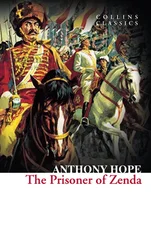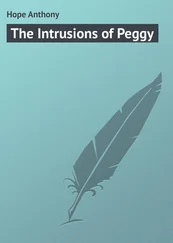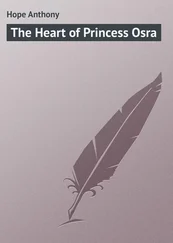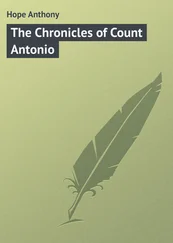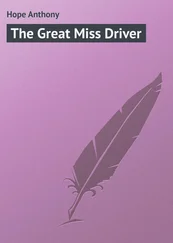
We were sword to sword. By blessed chance, neither he nor Bersonin had been wearing their revolvers. I found them afterwards, ready loaded, on the mantelpiece of the outer room: it was hard by the door, ready to their hands, but my sudden rush in had cut off access to them. Yes, we were man to man: and we began to fight, silently, sternly, and hard. Yet I remember little of it, save that the man was my match with the sword – nay, and more, for he knew more tricks than I; and that he forced me back against the bars that guarded the entrance to “Jacob’s Ladder.” And I saw a smile on his face, and he wounded me in the left arm.
No glory do I take for that contest (мне не снискать славы за тот поединок; contest – столкновение, борьба ). I believe that the man would have mastered me and slain me (я думаю, что тот человек одолел бы и убил меня; to slay ), and then done his butcher’s work (а потом сделал бы свою грязную работу; butcher – мясник; безжалостный убийца, палач ), for he was the most skilful swordsman I have ever met (потому что он был самым искусным фехтовальщиком, которого я когда-либо встречал; skill – искусство, мастерство, умение ); but even as he pressed me hard (но как раз /в тот момент/, когда мне уже ничего не оставалось: «когда он крепко прижал меня»; to press – жать, нажимать, прижимать; стеснять, затруднять; to press smb. hard – довести кого-л. до крайности ), the half-mad, wasted, wan creature in the corner leapt high in lunatic mirth, shrieking (тронувшееся умом, обессиленное, изнуренное существо в углу, высоко подпрыгнув, в безумной радости завопило; to waste – расточать, растрачивать; изнурять, истощать; to leap ):
“It’s cousin Rudolf (это кузен Рудольф)! Cousin Rudolf! I’ll help you, cousin Rudolf (я помогу тебе, кузен Рудольф)!” and catching up a chair in his hands (и ухватившись руками за стул) (he could but just lift it from the ground and hold it uselessly before him (он едва смог оторвать его от пола и бесцельно держал его перед собой; use – употребление, применение; польза, толк; useless – бесполезный )) he came towards us (он направился к нам). Hope came to me (надежда вернулась ко мне). “Come on!” I cried (давай! – крикнул я). “Come on! Drive it against his legs (бей его по ногам; to drive against smth. – бить, ударять по чему-л. ).”
Detchard replied with a savage thrust (Дэтчард ответил яростным выпадом; savage – дикий; свирепый, жестокий; thrust – толчок; удар, выпад ). He all but had me (он едва не проткнул меня; to have – иметь; одолеть, взять верх ).
“Come on! Come on, man!” I cried (давай, парень! – крикнул я). “Come and share the fun (подходи, и раздели веселье /с нами/; to share – делить, распределять; участвовать / в чем-л. / ; fun – веселье, забава )!”
And the King laughed gleefully, and came on, pushing his chair before him (король радостно засмеялся и пошел вперед, толкая стул перед собой).
With an oath Detchard skipped back, and, before I knew what he was doing (с проклятьем Дэтчард отскочил назад, и прежде, чем я понял, что он делает), had turned his sword against the King (повернул свой меч против короля). He made one fierce cut at the King (он нанес королю один жестокий удар; cut – порез, рана ), and the King, with a piteous cry, dropped where he stood (и король с жалобным стоном упал, как подкошенный: «упал, где стоял»; cry – крик; вопль, мольба ).

No glory do I take for that contest. I believe that the man would have mastered me and slain me, and then done his butcher’s work, for he was the most skilful swordsman I have ever met; but even as he pressed me hard, the half-mad, wasted, wan creature in the corner leapt high in lunatic mirth, shrieking:
“It’s cousin Rudolf! Cousin Rudolf! I’ll help you, cousin Rudolf!” and catching up a chair in his hands (he could but just lift it from the ground and hold it uselessly before him) he came towards us. Hope came to me. “Come on!” I cried. “Come on! Drive it against his legs.”
Detchard replied with a savage thrust. He all but had me.
“Come on! Come on, man!” I cried. “Come and share the fun!”
And the King laughed gleefully, and came on, pushing his chair before him.
With an oath Detchard skipped back, and, before I knew what he was doing, had turned his sword against the King. He made one fierce cut at the King, and the King, with a piteous cry, dropped where he stood.
The stout ruffian turned to face me again (головорез решительно повернулся, /и мы/ снова оказались лицом к лицу; stout – полный, тучный; отважный, решительный ). But his own hand had prepared his destruction (но он обрек себя на гибель своей собственной рукой: «но его собственная рука подготовила его гибель»): for in turning he trod in the pool of blood that flowed from the dead physician (потому что, поворачиваясь, он вступил в лужу крови, что натекла из-под мертвого врача; to tread ). He slipped; he fell (он поскользнулся и упал). Like a dart I was upon him (стрелой я метнулся к нему: «как стрела, я оказался над ним»; dart – дротик ). I caught him by the throat, and before he could recover himself (я схватил его за горло, и, прежде чем он пришел в себя; to catch; to recover – обретать снова, возвращать себе, получать обратно; to recover oneself – приходить в себя ) I drove my point through his neck (я пронзил ему шею своим мечом; to drive – везти; вбивать, вколачивать; point – острие, наконечник ), and with a stifled curse he fell across the body of his victim (и со сдавленным проклятьем он повалился на тело своей жертвы; to stifle – душить; задыхаться ).
Was the King dead (неужели король мертв)? It was my first thought (это было моей первой мыслью). I rushed to where he lay (я бросился туда, где он лежал; to lie ). Ay, it seemed as if he were dead, for he had a great gash across his forehead (да, казалось, он, как будто, был мертв, так как у него через весь лоб проходила глубокая рана), and he lay still in a huddled heap on the floor (и он бесформенной массой неподвижно лежал на полу; to huddle – сваливать в кучу; heap – куча, груда ). I dropped on my knees beside him (я бросился на колени рядом с ним), and leant my ear down to hear if he breathed (и приложил: «наклонил» ухо /к его груди/, чтобы послушать, дышит ли он). But before I could there was a loud rattle from the outside (но прежде чем я смог /это сделать/, снаружи раздался громкий стук). I knew the sound: the drawbridge was being pushed out (я узнал этот звук: это опускали мост; to push out – отталкивать ). A moment later it rang home against the wall on my side of the moat (минуту спустя он со звоном /ударился/ о стену с моей стороны рва).
Читать дальше
Конец ознакомительного отрывка
Купить книгу
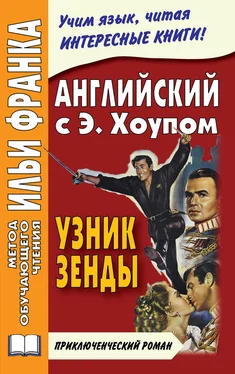


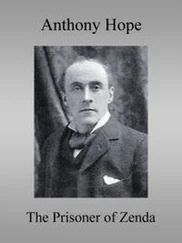
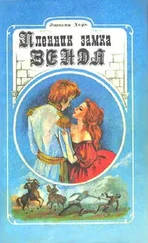
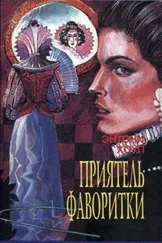


![Энтони Хоуп - Пленник Зенды. Месть Руперта [сборник]](/books/423551/entoni-houp-plennik-zendy-mest-ruperta-sbornik-thumb.webp)
